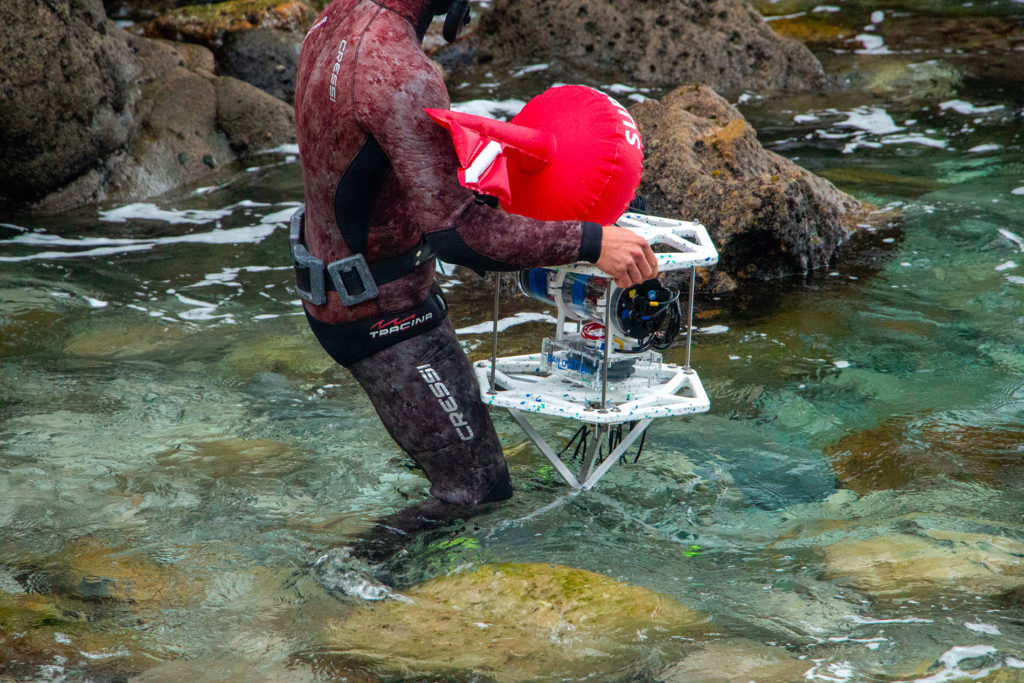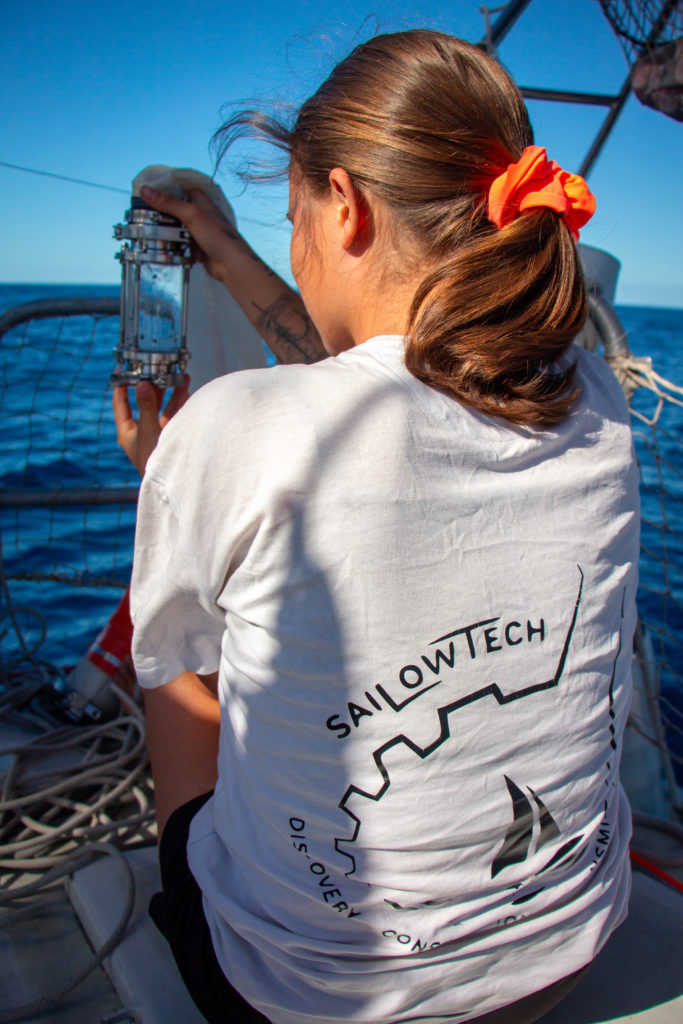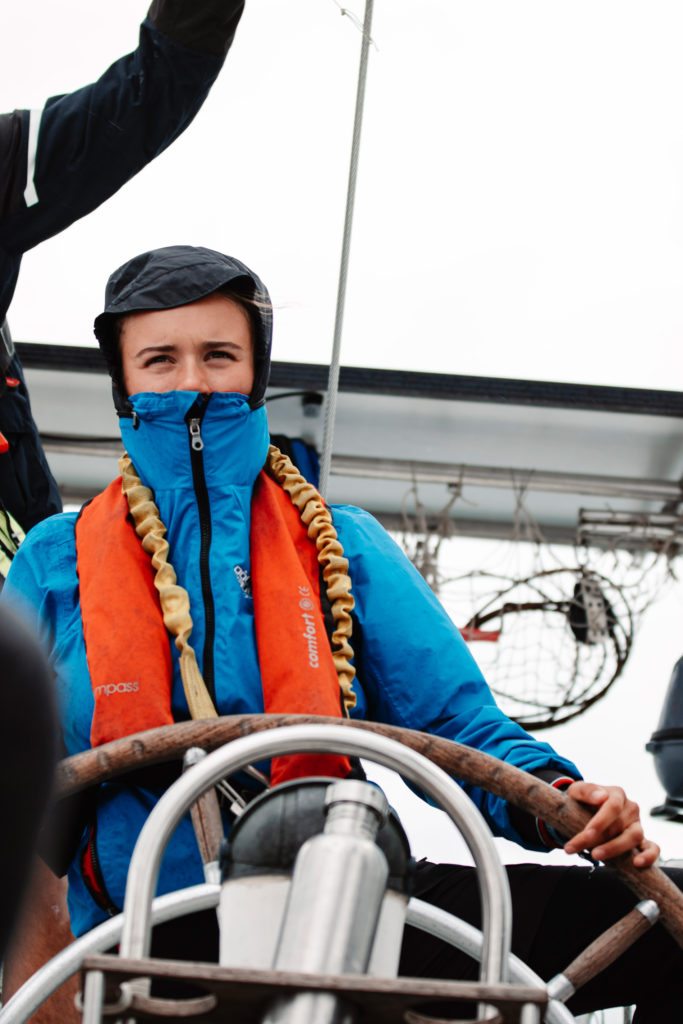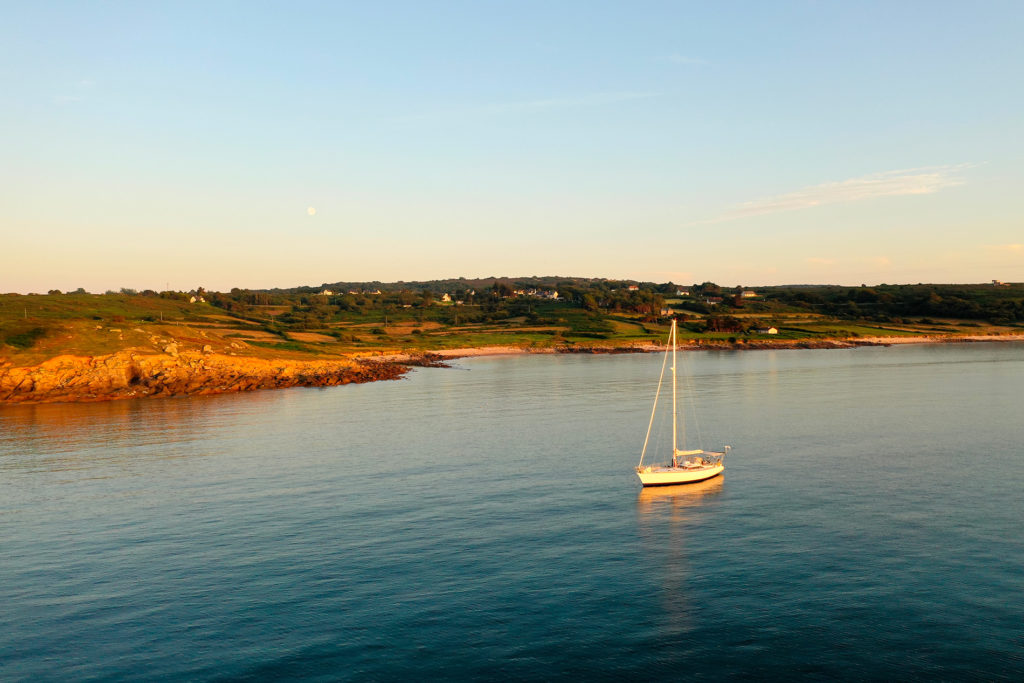The Sailowtech association, founded by EPFL students, aims to combine science and low-tech initiatives. In October 2023, its first expedition Atlantea and its seven crew members cast off for a year-long mission around the North Atlantic.
Text: Pauline Katz
On the EPFL campus, rather accustomed to cutting-edge technology, interest was immediate for this project advocating a low-tech science that would smell of sea air. In just a few months, a group of friends set up the Sailowtech association and carefully “cobbled together” their first expedition, named Atlantea.

Low-tech for dummies
The sailboat Carlina, kindly made available by the Ocean Trotter association, is a kind of floating laboratory, housing a panoply of curious objects. Andréa Montant, communications manager and second captain of the expedition, explains their approach: “There are many definitions of low-tech, but ours is based on the principle of doing no more than is necessary. The prototypes we have taken on board and are testing must be capable of being reproduced, repaired and used by anyone, without any prior knowledge. While some are used for scientific analysis, others are intended for everyday life aboard the yacht.”
Frugal science
Usually, scientific expeditions take place on big boats, equipped with high-tech, energy-hungry equipment, supposed to ensure the quality of the science on board. On its 13-meter keelboat, Sailowtech wants to prove that a more frugal, but just as rigorous, science is possible. In collaboration with the EPFL and other external laboratories, the Sailowtech crew has rethought all the scientific protocols and equipment on board. Andréa Montant adds: “Our sailboat is an ideal vehicle for demonstrating that a different kind of science can exist. As students, we’re not professionals, but we do have a certain scientific background. Eventually, we hope that some of the technologies we’re testing can be used in participatory science projects.”
Plankton mission
Sailowtech has chosen to study plankton because it is an organism essential to terrestrial life and an excellent indicator of the health of our oceans. Andréa Montant explains: “Plankton is at the base of the marine food chain. It also produces more than half the oxygen we breathe, while capturing a great deal of CO2. With our low-tech approach, we’d like to make its study even more accessible, while giving it visibility.”

On Carlina, young sailors don’t rest very often. During navigation, nets are deployed to collect plankton. These are then identified using a microscope developed by Plankton Planet, the Curiosity. Once studied, they are carefully preserved on filters for genetic analysis on their return. Once at anchor, the team launches Kosmos, an underwater camera built from open-source blueprints. It films coastal biodiversity and, in time, should include software capable of automatically identifying the species observed. Many other measurements are taken throughout the expedition, such as those on luminosity to better understand phytoplankton photosynthesis, or those on dissolved gases in collaboration with the University of Geneva. The expedition also takes advantage of its stopovers to discuss low-tech science with local communities and organizations. For the latter, this is often a reality, as high-tech technologies are not accessible.

The rest of the adventure
The Atlantea expedition still has many months ahead of it. After the Caribbean, it will sail up the coast to Greenland, before reaching Iceland and the Faroe Islands. Its return to the port of Brest is scheduled for autumn 2024. In parallel, the Alpine Lake mission will start in February 2024 on Lake Geneva in Switzerland. A dozen students will spend 10 days on the lake, their main objective being to study the impact of climate change on plankton and lake sediments. For this expedition, several low-tech projects are being built on the EPFL campus, including a Secchi disk and a wind turbine. In the future, Sailowtech hopes to enable apprentice scientists to commit themselves to frugal science by offering them a practical, floating platform!


